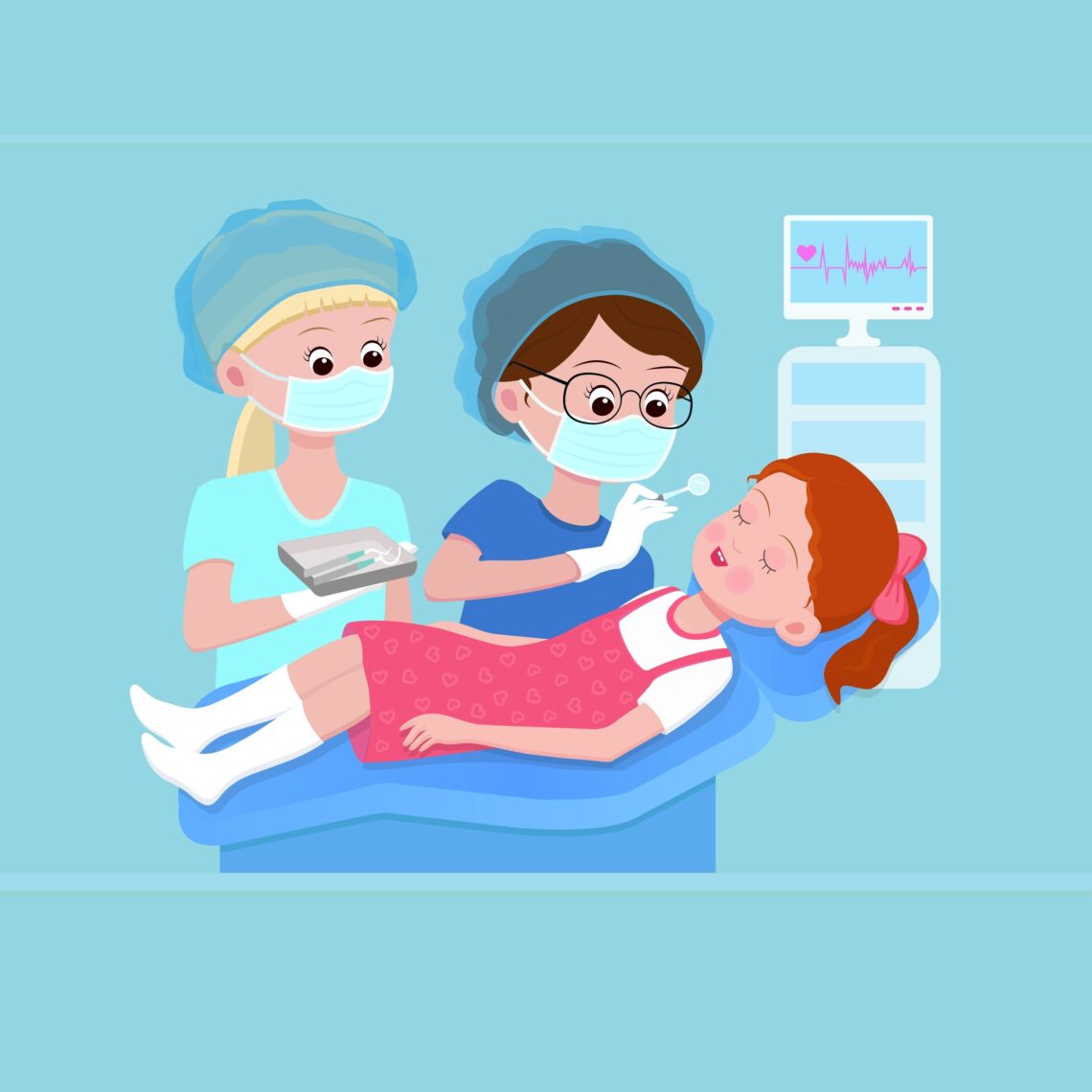
Dental procedures for children can sometimes incite fear in children. In some cases, there is pain or discomfort attached to the process as well.
For this reason, it may be necessary to sedate a child prior to a dental procedure, but it is important to note that there can be potential side effects of sedation in a child.
If your child is in need of a dental procedure that requires sedation, reach out to Dison Family Dental first for a second opinion. We can help you decide if it’s the right choice in your situation.
Child Sedation Dentistry Side Effects
There can be side effects associated with sedation for children undergoing dental procedures. In some cases, the side effects can negate the benefits of the sedation, depending on what the alternatives are.
The most common side effects of dental sedation in children include the following:
- Drowsiness: Just like adults feel drowsy after sedation and cannot drive themselves home, children may feel sleepy after the procedure and need to rest for a while until they are back to normal.
- Nausea and vomiting: Some children experience nausea and vomiting after the procedure, especially if they have a history of motion sickness. Depending on the type of medication used for sedation, it may cause nausea and vomiting during the procedure, which is why it is usually recommended that the patient avoid eating or drinking beforehand.
- Dry mouth: It is a mild side effect, but children may have a dry mouth due to the effects of the medication used for sedation when they wake up. They may find it noticeably uncomfortable and/or complain that drinking water doesn’t help, but it will go away in time.
- Headache: Headache is not uncommon after undergoing dental sedation, and children may need to rest until it goes away.
- Disorientation: Children may feel disoriented and confused after the procedure, especially if they have been sedated for a longer period of time.
Side Effects Due to Child Dental Sedation Are Usually Mild
It’s important to note that side effects in children caused by the use of sedation in a dental procedure are typically mild and short-lived. In most cases, they resolve on their own within a few hours or, at most, a day after the procedure.
If your child experiences any severe or persistent side effects, it’s important to contact the dentist or a medical professional for further evaluation and treatment. In most cases, your child will be kept in the office for observation for some time after the procedure, but if any serious issues occur after you return home, call for emergency medical help.
Alternatives to Child Dentistry Sedation
In some cases, it may be possible to avoid “going under” when your child needs a dental surgery or intervention. Nitrous oxide and local anesthesia may be a better choice, and it’s always a good idea to ask about all your options before committing to one.
If your child needs a dental procedure, contact Dison Family Dental for an appointment today.
References
Post-Sedation Events in Children Sedated for Dental Care. (Summer 2013). Anesthesia Progress: The Journal of Sedation and Anesthesiology in Dentistry.
